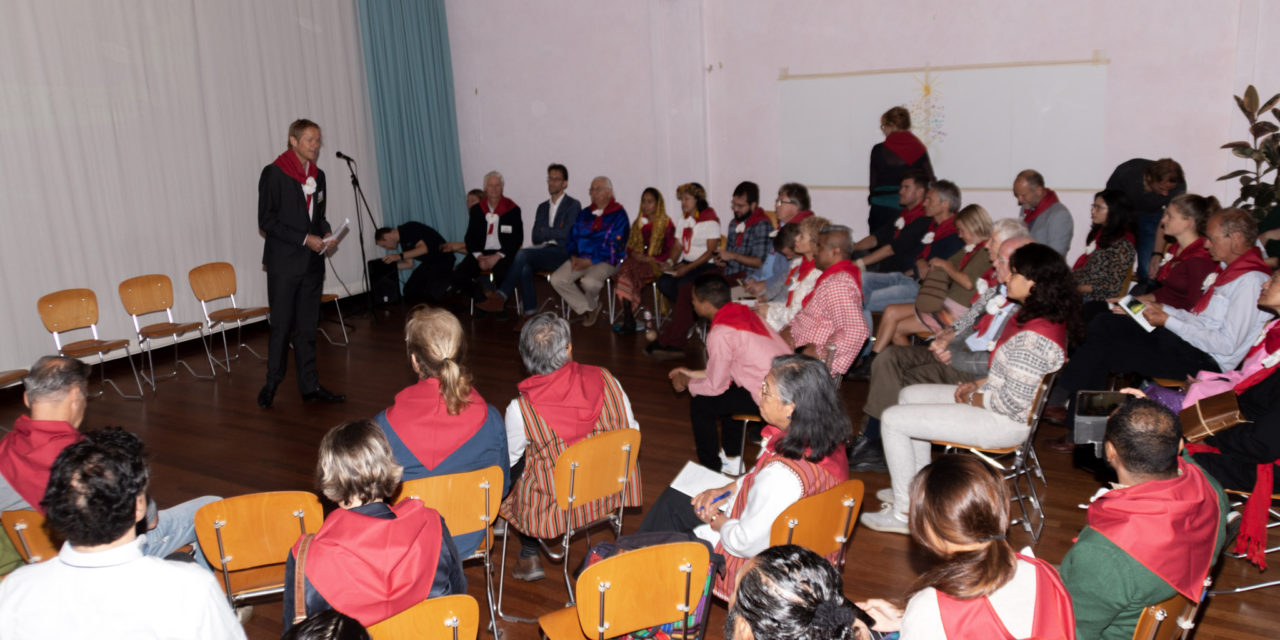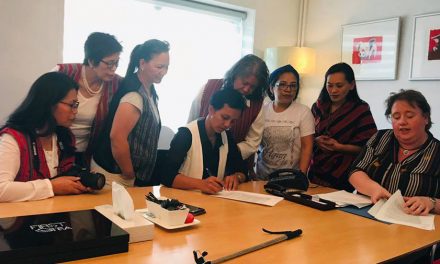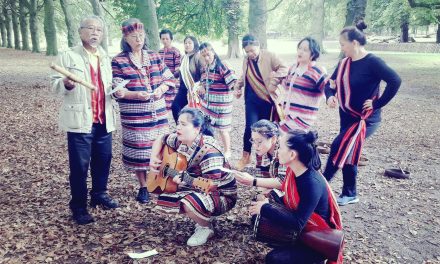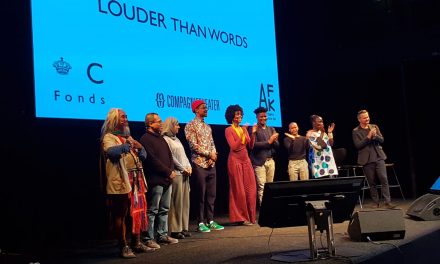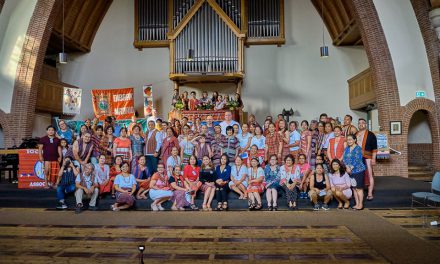By Yvonne Belen
Three members of MABIKAs Foundation Board attended a conference organized by the Netherlands Center for Indigenous Peoples (NCIV) in celebration of its 50 years of existence. MABIKAs representatives Renijune Abaya, Yvonne Belen and Cesar T. Tagubaat joined the celebration that took place at Elizabeth Vreedehuis in The Hague, The Netherlands on 13 September 2013.
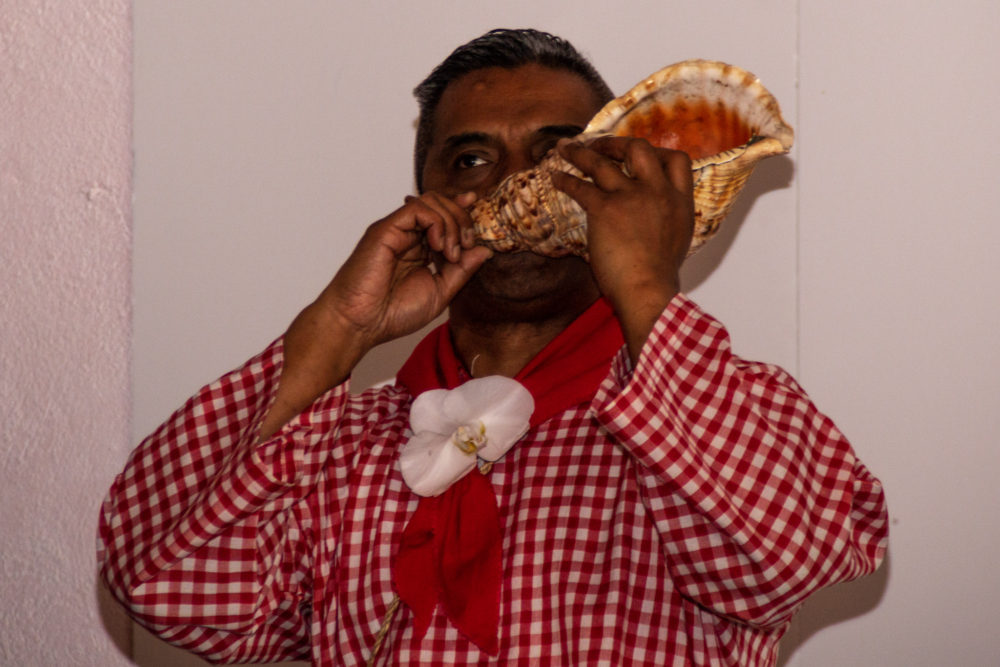
With the theme, “Voice of the Earth”, the conference began with a flower ceremony led by Bunga Tjempaka of the Bangsa Adat Allifuru IP group. The conference was called to order by blowing a huge shell. SeMUel Sahureka greeted the NCIV on its 50th year of existence and thanked them for their support. On the flower ceremony, he said that the tjempaka flower or magnolia is a “gift from the Creator’s love for mankind.” Later on, all attendees were given a red scarf with a tjampaka flower placed close to the heart. This will endow people with love in their hearts.
After a short coffee break, Serv Wieners of Transparency International, moderated the plenary session. In his opening remarks, he welcomed the participants and said the participants will discuss issues of indigenous peoples (IPs) and relationship of IPS with the Netherlands. He added that there will be visualizing, listening and drawing sessions.
Afterwards, Joris van de Sandt, on behalf of the NCIV Board, welcomed the participants. He said that we would like to look back to the aspirations of the indigenous peoples, who experience similar problems even at present, and the role of NCIV with the current conditions.
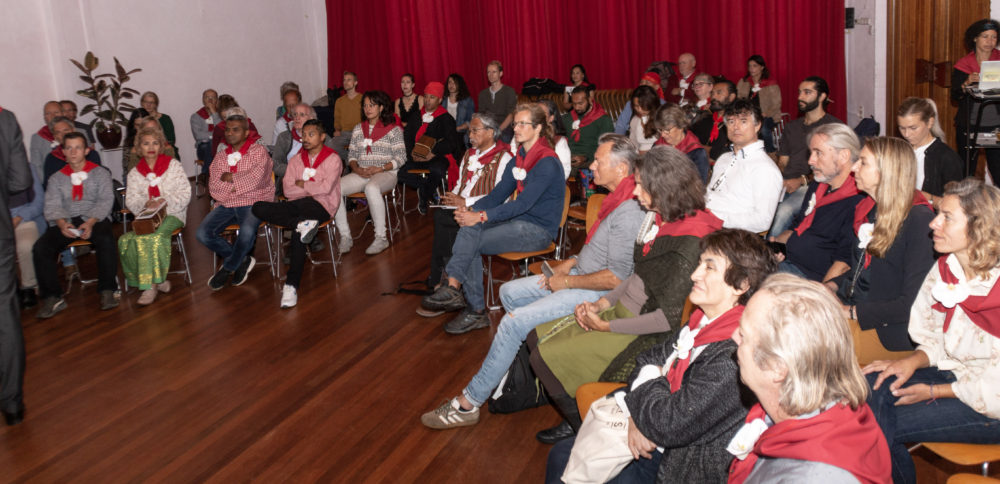
Later on, Leo van der Vlist, director of NCIV since 1990, traced 50 years of the NCIV. It was in 1969 when Norman Lewis wrote about genocide of Indians in Brazil and WIZA (Working Group Indians South America) was set up. It aimed at giving support to the Indians and increasing public awareness. This group continued in the Working Group Indigenous Peoples, which was later named Netherlands Center for Indigenous Peoples (NCIV). Through the years and in various ways, NCIV supported indigenous peoples. NCIV co-organized the Fourth Bertrand Russell Tribunal on the Rights of Indians in the Americas in Rotterdam in 1980. When the Working Group on Indigenous Populations was established in 1982, NCIV provided funds to enable IP delegates to attend the annual meeting in Geneva held usually in July. Another high point in the life of NCIV is its support for the implementation of the UN Declaration of the Rights of Indigenous Peoples (UNDRIP), which was adopted on 13 September 2007. NCIV has given grants to 200 IP projects with funds given by the Dutch government. However, the NCIV stopped with the projects when the Dutch government also stopped giving funds to them. Presently, Leo is a member of the Board of Forest Stewardship Council serving as a liaison with the Permanent Indigenous Peoples Committee. He is also active in another Dutch NGO, Embassy of the Earth. When Leo was asked what made him choose to work with the indigenous peoples, he replied, “It is either the hand of God or the eyes of Sitting Bull.” In conclusion, Leo asked, “What should be the future role of NCIV?”
There were three resource persons namely, Vandria Borari from Brazil, Kenneth Deer from the Mohawk nation and Fadillah Ohorella of the Bangsa Adat Allifuru.
Vandria Borari is a lawyer from the Borari people in Brazil. She thanked NCIV for inviting her to speak, especially with the current burning of the Amazon. Among the things that Vandria said were: The Amazon is on fire…The theme Voices of the Earth is important as we are together to save the Earth…The Amazon was burning some weeks ago and is still burning…We are aware of the mining and logging in the IP territories. Eighty percent of deforestation is due to cattle raising. More soya production is responsible for deforestation. The guardians are killed for protecting the forest…We need extreme help first as the Amazon is the biggest rainforest in the world. The leaders protesting forest fires are facing big problems. We need support for these people protesting.”
Kenneth Deer thanked NCIV for their presentation. He said that what is happening in the Amazon is a disaster. As one of those who drafted the UN Declaration for the Rights of Indigenous Peoples (UNDRIP), he said that there is a lot of resistance to the declaration. This is especially on the use of the word, peoples. Some states say that IPs are not peoples thus, have no right to self-determination. He also said that the UNDRIP was passed because all IPs suffer the same violation. In order to defeat the states, the IPs came with the idea that they will go to the UN as one. He also said that IPs are victims of genocide; that their struggle is the same and hasn’t changed.
The last resource person was Fadillah Ohorella of the Bangsa Adat Allifuru. She spoke on the settling of 3,000 Indonesians on the land of the Allifurus. So, the Allifurus have to leave their land and forest. She emphasized the connection of the IP with Mother Earth.
In between speeches, two solidarity messages were shown.
Break-out sessions followed after lunch. Yvonne attended Access to Justice; Cesar was a resource person on Land rights and Land governance; and June attended Climate, Forests and Biodiversity.
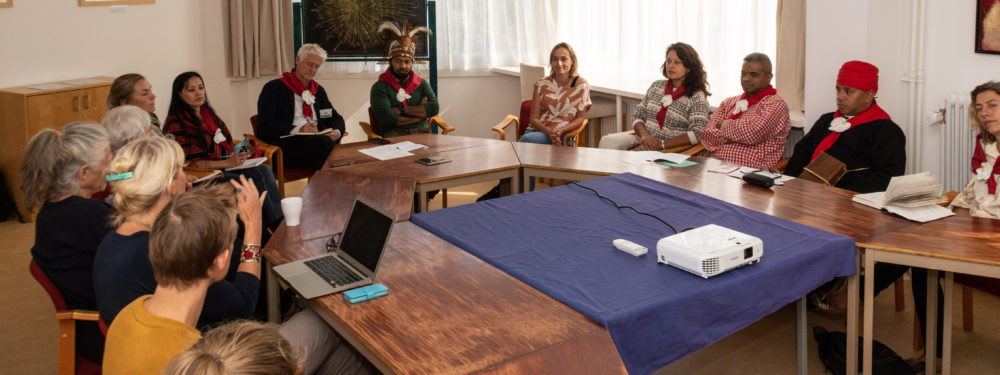
In the Break-out session that Yvonne Belen attended, Kenneth Deer spoke on the UNDRIP. The main points are: indigenous peoples with emphasis on the word “peoples,” that IPs are equal to other people and they have the right to self-determination. He added that the declaration is not binding; it is a map that directs states on what should be applied to IPs; that states will not implement but courts will.
Tim Boekhout van Solinge of Forest Forces, showed how a camera can be used to defend their forest, i.e., technology can be used as an access to justice.
During the first plenary session, the recorder of each Break-out read the conclusions. For the first on Access to Justice, the conclusions on the UNDRIP are: it can be seen as a map in understanding IP rights; lawyers need to be educated on IP rights; the declaration needs to be connected to existing instruments; it will take years to see the effects of the declaration; and the Universal Peer Review (UPR) system can be used to enhance IP rights. On the use of technology such as a camera, the GPS system has been developed that can track coordinates to demarcate areas for IPs.
For the second on Land rights and land governance, the conclusions are: IPs have extreme diverse situation but have the same issues everywhere; and local and bottom up development.
For the third group on Climate, forests and biodiversity: put people, especially IPs first; conservation agencies should be honest in explaining the role of the people..
The topic for the second Plenary was on the future of NCIV. The question posed was: Is there a need for another NCIV for the next 50 years? If so, what should be its contents, activities and structure?
Some responses were:
(1) We need knowledge and action;
(2) There should be movement among IPs—in the academe or in the streets;
(3) There should be ways to enable IPs to support each other, e.g., social media; and
(4) IP should be supported in their leadership.
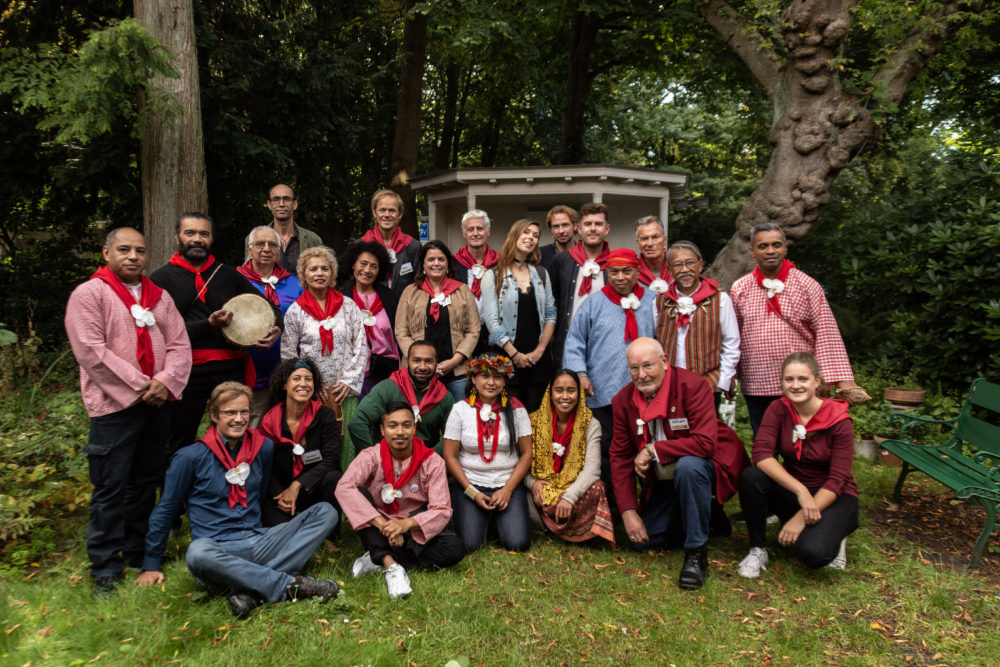
The idea of NCIV being a hub was also brought up. It can help form a platform for IPs in the Netherlands, so they can come together and share experiences. The NCIV could first make a survey of IP groups in the Netherlands and find out their needs.
The conference ended at 17:00 with the attendees spending time until 18:00 hours to network. On the whole, the conference was informative and educational with many possibilities of networking.
Photos by Paul Looijestijn. Click here to see complete set of photos.
